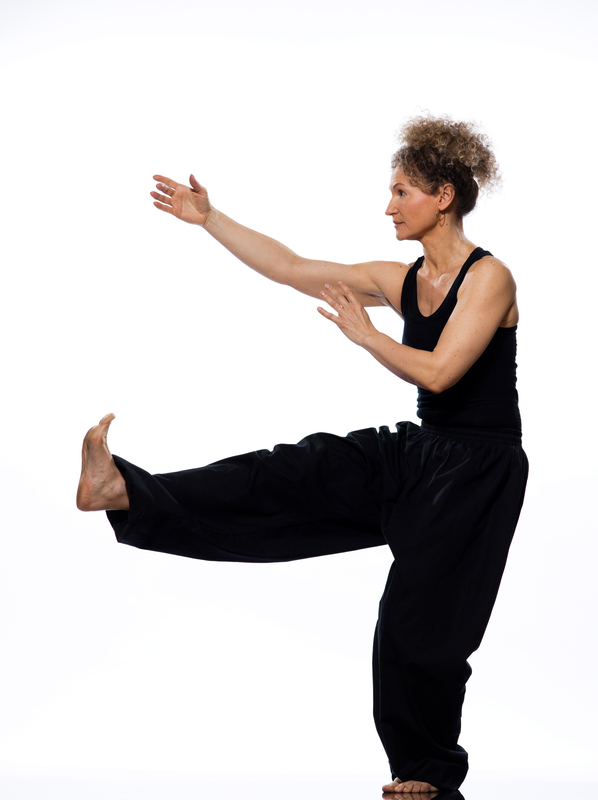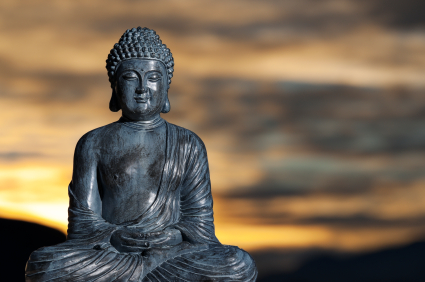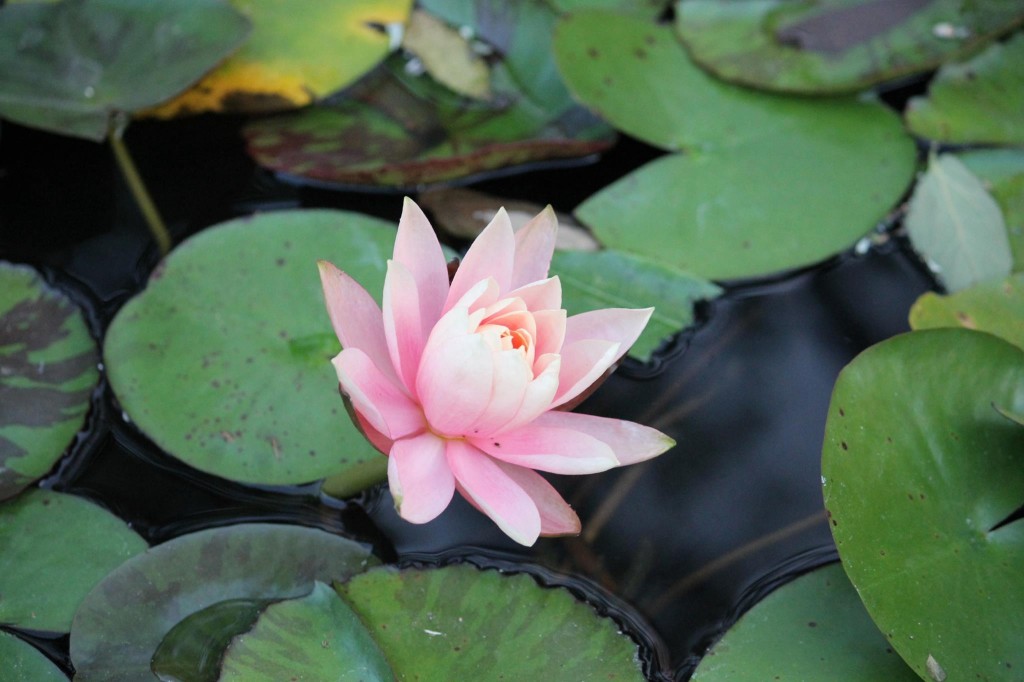Wednesday Bubble: No mystique, just perseverance
 Time for another menopause downer…followed by some good news! First the downer: declining levels of estrogen during menopause tend to reinforce a decline in the body’s ability to naturally metabolize blood fats and its ability to fight off the ravages of oxygen-free radicals, you know, free roaming oxygen ions that can wreak havoc on the immune system. The result is often an upsurge in heart and other metabolic diseases. You can read more about those conditions here.
Time for another menopause downer…followed by some good news! First the downer: declining levels of estrogen during menopause tend to reinforce a decline in the body’s ability to naturally metabolize blood fats and its ability to fight off the ravages of oxygen-free radicals, you know, free roaming oxygen ions that can wreak havoc on the immune system. The result is often an upsurge in heart and other metabolic diseases. You can read more about those conditions here.
Okay, so the good news: it appears that Tai Chi training may help increase the body’s antioxidant defenses in both pre- and post-menopausal women! In fact, in a study published a few years ago in the Journal of Aging Research, investigators noted a marked change in antioxidant markers normally related to aerobic exercise, as well as a decline in a marker for heart disease risk.
For those of you unfamiliar with Tai Chi, it is an ancient Chinese martial art form that combines breathing with smooth, gentle postures. It may look fairly tame, however, having studied Tai Chi for a short period of time, I can assure you that it’s damn hard. Moreover, despite appearances, it is a weight-bearing exercise that not only strengthens muscles but also is on par with moderate intensity aerobic exercise. It has also been shown to improve mobility, flexibility and balance, improve sleep and overall wellbeing, and even enhance the circulation of blood through the smallest of blood vessels.
I’ve written about the effect of breathing on stress and the body’s stress markers. However, it appears that when Tai Chi is combined with slow and deep breathing exercise (i.e. 6 breaths per minutes) overall benefits are boosted. Indeed, two, 75-minute Tai Chi sessions a week combined with two hours of at home practice appeared to do just what the doctor ordered. These sessions involved 10 min of warm up/stretching, 60 minutes of Tai Chi (45 minutes 18-posture Tai Chi and 15 min Tai Chi Fan Style) and an initial check in period. In addition to the slow, rotational, fluid movements (1.5 minutes per motion), the women participating in the study were taught to control their breathing. Over the eight weeks, they also underwent blood and had physical fitness evaluations.
The findings? Tai Chi training improved balance, flexibility and leg extension strength in all of the women regardless of menopausal status. LDL cholesterol was also lowered. And, as mentioned, markers for antioxidant activity increased significantly while a marker for heart disease risk decreased.
Tai Chi is low impact and is especially valuable for women who may not be physically able to boost their aerobic routines. What’s more, once mastered, it can be practiced in the privacy of one’s own home. Once again, the mind-body connection proves to be pretty darn cool and important to health and wellness! This time, it might take some practice but perseverance rules the day! “There is no mystique to Tai Chi Chuan. What is difficult is the perseverance. It took me ten years to discover my chi, but thirty years to learn how to use it. Once you see the benefit, you won’t want to stop.” – Ma Yueh Liang
Read MoreFeeling lonely? Meditate!
I spent this past weekend in NYC, the place that I once called home and in my heart of hearts, still do. But as I sat at lunch yesterday and watched people stroll by, I realized that many of them were alone. And I remembered that despite the millions of people in NY, I often felt very much alone there. I don’t feel that way very often any longer and yet, I imagine that it’s not simply a geographically-driven emotion but rather, life changes have a lot to do with loneliness. Indeed, by the time that midlife hits full on, many adults find themselves going through a divorce, losing loved ones to illness and watching their children leave the house for college or to start their lives and careers. Sound familiar? Well, then you might also find the link of these events to loneliness and in turn, to an increased risk of heart disease, depression and even premature death, important.
While the underlying reasons for these associations are complicated, suffice it to say, research suggests that stress can trigger inflammation that has been shown to increase the risk for chronic illness and death. Fortunately, for the first time, there may be a solution: meditation.
Researchers from UCLA say that study findings show that incorporating 30 minutes of daily meditation practice may help to alter the way our genes bolster inflammatory processes in the body by altering feelings of loneliness. Indeed, when people between the ages of 55 and 85 were trained in mindfulness meditation practice, they did more than find inner peace. Here’s the skinny:
Half of the participants participated in a trainer-led, two-hour mindfulness sessions in which they were guided through mindfulness meditation exercises, mindful yoga and stretching, and group discussions that were intended to help promote mindful awareness of the present moment, and moment to moment experience; these sessions were held weekly for eight weeks. They also participated in a day-long retreat towards the end of the study where their practice were more closely integrated and discussed. Additionally, these men and women practiced at least 30 minutes of mindfulness sessions for six days a week during the program.
Mind you, the study was very small and included only 40 participants. However, learning how to live in the present appeared significantly reduce feelings of loneliness and alter both genes and protein markers of inflammatory by as much as 25%, including the signal that activates the inflammatory processes in the body. The researchers say that also observed a decline in C-reactive protein, which has been linked to heart disease.
Loneliness..scientifically, it’s been described as “a state of social distress that arises when there is a discrepancy between one’s desired and actual social relationships.”
I like this description better, from the great Buddhist nun and teacher, Pema Chodron:
Loneliness is “restless and pregnant and hot with the desire to escape and find something or someone to keep us company. When we can rest in the middle [through meditation practice], we begin to have a nonthreatening relationship with loneliness, a relaxing and cooling loneliness that completely turns our fearful patterns upside down.”
Mindfulness meditation. It may alleviate more than heartache and benefit in ways that we have yet to imagine.
Read More
Wednesday Bubble: cultivate your inner lotus
[Photo credit: Priya Ramesh, Coorg India. 2013]
On Monday, I shared information about the benefits of mindful meditation and being present and how they positive affected stress and the hormone cortisol. I cannot stress the importance of incorporating stress busters into your life; not only is your mental health at stake but the risks to your overall health are numerous. If meditation is not your thing, there are other strategies to consider, including yoga, Tai Chi, acupuncture and deep breathing. There is also Qigong.
Qigong is a Chinese practice harkening back more than 4,000 years. In many ways, it incorporates the best of several strategies, including alignment of movement and breath, meditation and yoga (strength, flexibility). My friend and colleague, Jeri Hemerlein, teaches a female-specific form of Qigong at the Yoga Center in Columbia, MD. Known as Radiant Lotus Qigong, Jeri describes it as a flowing form combining ancient Chinese and Tibetan techniques to health issues unique to women. Radiant Lotus Qigong uses the lotus flower as a metaphor for female resilience and flexibility. The movements open the body’s energy, gently stretching and releasing tension from muscles, joints and spine while waking up the immune system. The form seeks to enhance the whole body health of women from menstruation to post menopause, while supporting the Divine Feminine nature and helping the woman return to an innate state of loving compassion, wisdom and inner strength during times of stress and intense emotions. The form was created by Advance Qigong practitioner Daisy Lee, who developed it after studying with various Qigong teachers who were able to successfully address women-specific issues through original and individual forms.
If you visit Daisy’s website, you can learn more. Or, if you are local to the DC/MD area, you can attend a workshop that I am blessed to be giving with Jeri on April 23, 2013 at 6:30 pm in Annapolis. ‘Cultivate Your Inner Lotus: Menopause, Stress & Qigong” aims to help you gain a better understanding of stress during menopause and provide you with specific techniques to address it on your own. I hope that you’ll consider joining us.
Cultivating your inner lotus may be the best thing you can do for yourself.
Read More
Every breath you take
We know that deep, focused breathing is a great stress buster, easy to practice and even easier to learn. However, it looks as though the breath you exhale may also be a harbinger of the very stress that you are letting go of. In fact, UK researchers have discovered that the breath has certain markers that may allow it to become a stress detective, if you will.
These markers are a mouthful, literally! Known as 2-methylpentadecane and indole, these very compounds appeared to increase following a stress exercise in 22 young adults who offered their breath for science! Using a scientific technique to analyze breath samples when the volunteers were calm and then stressed, and also measuring heart rates and blood pressures, the researchers were able to identify six compounds in breath related to stress but only the two mentioned above increased. What’s more, the stress response — faster breath and increased heart rate — appeared to change the normal composition of the breath.
I never thought that I’d be writing about breath profiling on this blog but it fascinating. Clearly, changes in breathing patterns have effects — either positive or negative — in the body. But would it be possible to develop a simple test to help suss out underlying stress, the type that over time, can lead to burnout, depression and of course, illness?
Only time will tell and larger studies are needed. But the very breath you take might be equal to the stress you make.
Meanwhile? Inhale. Hold. Release. Every breath you take matters.
Read MoreWednesday Bubble: Relax, just do it.
You think that hormones are the only solution to hot flashes?
Think again!
This is not the first time that I have reported that the mind-body connection is an important key to menopausal symptoms. Moreover, it probably won’t be the last. In fact, in a second study published within the past 18 months in Menopause journal, researchers are again moving away from hormones and moving towards applied relaxation. (A related study topic-wise can be found here.)
This time, Swedish researchers assigned 60 women in menopause to either ten sessions of group therapy combined with relaxation or to no intervention for three months. All of the women had been experiencing moderate to severe hot flashes at least 50 times a week. During the 10 group therapy relaxation sessions, the women were taught to methodically move through the body’s muscle groups and use breathing techniques to systematically relax each group. They were then provided with exercises to practice daily at home, with the the goal being to learn the relaxation method and self-manage their symptoms. During this period, all participants kept a regular hot flash diary and filled out a quality of life survey on three different occasions. They also provided the researchers with a sample of their saliva.
The findings? Women practicing daily relaxation and engaging in regular coaching sessions actually reduced their daily hot flash count from an average of 9.1 to 4.4 a day; that’s about a 50% reduction. In the group of women who had no interventions, a reduction in daily hot flashes was also observed but on average, these women experienced less than two fewer flashes a day; this is likely the result of what researchers consider a ‘placebo effect.’
More importantly, benefits of relaxation remained for at least three months after the study ended and the final therapy sessions. The women who practiced relaxation also reported improvements in overall wellbeing and quality of life, including sleep and memory. What’s more, saliva testing showed reductions in cortisol; as I’ve written previously, stress leads to cortisol release and ups the hot flashes ratio. Once that cycle starts, who knows how long the endless loop plays out?!
Time to stop the loop? Forget the drugs. Breathe deeply, exhale and repeat. Just do it.
Read More









